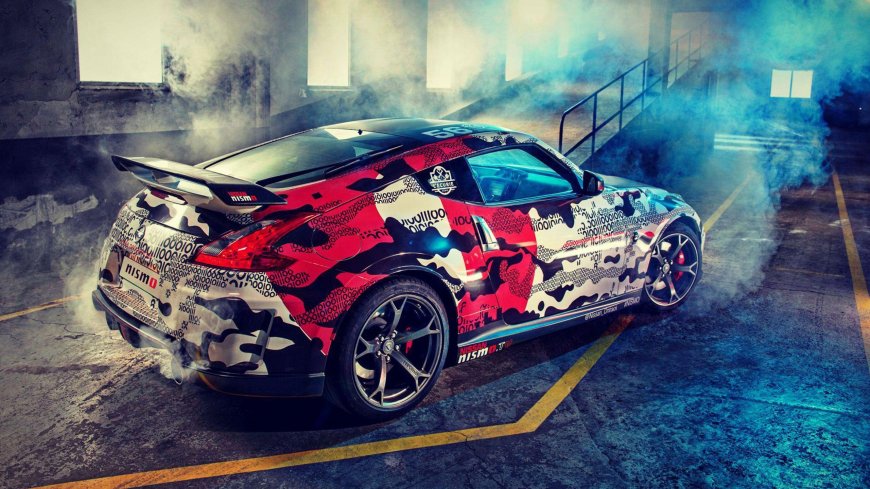1. Understanding Car Modification
2. Setting Your Goals
Performance Enhancements:
-
Engine Tuning: Optimizing your engine for better performance can include ECU remapping, turbocharging, or supercharging.
-
Suspension Upgrades: Improve handling and ride quality by upgrading to performance shocks, struts, and springs.
-
Brake System: Enhance stopping power with performance brake pads, rotors, and calipers.
Aesthetic Modifications:
-
Body Kits: Transform the car's exterior with custom bumpers, side skirts, and spoilers.
-
Wheels and Tires: Upgrade to stylish rims and performance tires for better grip and appearance.
-
Interior Customization: Personalize your car's interior with new seats, steering wheels, and custom upholstery.
3. Setting a Budget
|
Modification Type
|
Estimated Cost (USD)
|
Notes
|
|
Engine Tuning
|
$500 -$3000
|
Depends on the extent of modifications
|
|
Suspension Upgrades
|
$300 -$1500
|
Quality and brand affect prices
|
|
Brake System
|
$200 -$1000
|
Performance parts can be pricey
|
|
Body Kits
|
$1000 -$5000
|
Custom kits are more expensive
|
|
Wheels and Tires
|
$400 -$2000
|
Size and brand matter
|
|
Interior Customization
|
$200 -$2000
|
From simple to extensive changes
|
4. Researching and Planning
-
Forums and Communities: Join online forums like Reddit’s r/cars or dedicated car modification communities to gain insights and tips from experienced modders.
-
YouTube Channels: Follow channels like Mighty Car Mods for step-by-step tutorials and inspiration.
-
Magazines and Blogs: Read publications like Motor Trend and Car and Driver for reviews and expert advice.
Planning:
-
Create a Timeline: Outline your project stages to stay organized and avoid rushing.
-
Gather Tools and Parts: Make a list of required tools and parts. Websites like Amazon and eBay can be great for sourcing.
-
Consult Experts: If unsure, consult a professional mechanic or a car modification specialist.
5. Legal Considerations
-
Emissions Regulations: Check if your modifications comply with local emissions standards.
-
Safety Standards: Ensure your modifications do not compromise the car’s safety features.
-
Insurance Implications: Inform your insurance provider about the modifications to avoid voiding your policy.
6. Basic DIY Modifications
Air Intake System:
-
Improves engine performance and efficiency.
-
Estimated cost: $100 - $400.
-
Difficulty: Easy.
Exhaust System:
-
Enhances sound and performance.
-
Estimated cost: $200 - $1000.
-
Difficulty: Moderate.
LED Light Upgrades:
-
Modernizes the look and improves visibility.
-
Estimated cost: $50 - $300.
-
Difficulty: Easy.
7. Tools and Equipment
-
Wrench Set: For various nuts and bolts.
-
Socket Set: For different sizes of fasteners.
-
Jack and Jack Stands: To safely lift and support your car.
-
Screwdrivers: Both flathead and Phillips.
-
Torque Wrench: Ensures bolts are tightened to the correct specifications.
8. Safety Tips
-
Work in a Well-Ventilated Area: Avoid inhaling harmful fumes.
-
Use Protective Gear: Wear gloves, safety glasses, and appropriate clothing.
-
Follow Manufacturer Instructions: Always adhere to guidelines for tools and parts.
9. Finding Reliable Suppliers
-
Summit Racing: Offers a wide range of performance parts.
-
JEGS: Known for high-quality auto parts and accessories.
-
RockAuto: Provides a comprehensive catalog of parts.
10. Documenting Your Progress
-
Taking Photos: Document each stage of your project.
-
Keeping a Log: Note down any issues encountered and solutions found.
-
Sharing Online: Post your progress on social media or forums for feedback and encouragement.
